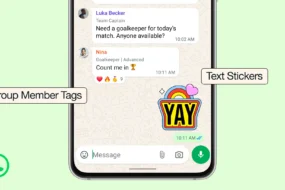Nigeria’s fintech landscape is experiencing a major shift, with Touch and Pay (TAP) Technologies Limited leading the charge. The company, known for its Cowry card used in Lagos’ Bus Rapid Transit (BRT) systems and train services, has achieved a staggering 291% growth in closed-loop prepaid card usage between 2021 and 2024, according to a recent Euromonitor International report.
Closed-loop prepaid cards, which are preloaded with funds for use only within specific networks or with selected merchants, have gained popularity as Nigeria’s transportation sector embraces cashless payments. The transition to cashless systems is particularly crucial for Nigeria’s largely informal transport network, where cash transactions are not only cumbersome but also heighten risks of theft.
Unprecedented Growth Driven by Infrastructure and Accessibility
The report reveals a dramatic rise in closed-loop prepaid card transactions in Nigeria, climbing from 2.2 million in 2021 to 8.6 million in 2024. This impressive growth was accompanied by a surge in transaction value, which soared from ₦6.16 billion to ₦18.03 billion within the same period. While TAP’s primary market is Lagos State, where it serves as the exclusive payment provider for mass transit systems, specific data for Lagos was not disclosed.
The popularity of prepaid cards is closely linked to road infrastructure developments and the launch of the Lagos Blue Line train, both of which have boosted the demand for Cowry cards since their introduction in 2021. According to the report, TAP now boasts over five million users, a sharp increase from 3.8 million in 2023.
During an interview, TAP’s CEO, Olamide Afolabi, shared that the company issued 552,000 cards in 2024, surpassing the 400,000 cards distributed in 2023. He added, “To use the BRT system, commuters must have a Cowry card. We are the sole provider of the card payment system for transportation in Lagos and several other states.”
Convenience and Adoption Among Commuters
The Cowry card, sold for ₦1,000, uses near-field communication (NFC) technology to provide contactless payments for buses and train rides. Users can conveniently add funds through the Cowry Wallet app, which also features a pay-with-phone option. However, most commuters prefer topping up through bank transfers or agents.
Lagos resident and consumer data analyst, Precious Kuye, who bought her Cowry card for ₦400 in 2021, highlighted its convenience, saying, “I can easily add money through the app or at the terminal.”
Similarly, graphic artist Deborah Innocent praised the card’s user-friendliness, noting, “It’s user-friendly and much easier to use.”
The adoption of the Cowry card was further boosted by SmartCash Payment Service Bank, a subsidiary of Airtel Nigeria, which partnered with TAP in August 2024 to introduce new top-up features for the cards.
The Future of Cashless Payments in Nigeria’s Transport Sector
The success of TAP’s Cowry card highlights how technology can reshape consumer behaviour, even within unstructured markets. Uchenna Uzo, a marketing professor at Lagos Business School, noted, “The growth in card usage demonstrates how technology can subtly influence consumer behaviour, even in unstructured markets. It underscores the critical role of user adoption in Nigeria’s payment ecosystem—a market that deserves close attention. A thriving retail sector depends on a seamless digital payment system.”
While challenges remain, there is increasing awareness of the benefits associated with a cashless transportation system. As prepaid card adoption continues to spread, the possibility of achieving a fully digital, cash-free transport experience becomes increasingly realistic for millions of Nigerians.







No Comments